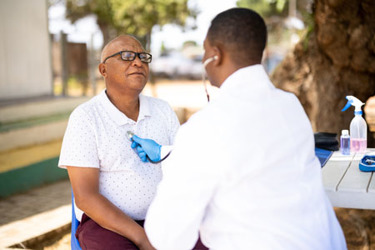Mobile Research Units Enable Large Volume Patient Screenings At Community Events

The pathophysiological process of Alzheimer’s Disease begins more than a decade before Alzheimer’s Disease dementia. While in this stage, individuals will have preserved cognitive abilities but underlying Alzheimer’s Disease pathophysiology, known as preclinical Alzheimer’s Disease. Preclinical Alzheimer’s Disease can be characterized by identifying specific levels of biomarkers that indicate a predisposition for neurodegeneration in the future.
While no treatments targeting the underlying pathology of Alzheimer’s Disease in this stage are currently available, consensus in the life sciences industry is that compounds targeting this process may have greater benefit when started earlier in the disease continuum.
In a Phase 3 clinical trial focused on pre-clinical Alzheimer’s Disease, adult patients were required to receive intravenous infusions every four weeks for approximately 32 weeks during the double-blind treatment period. Next, there was a double-blind observation period for up to 150 weeks, followed by an open-label extension period for patients who received placebo that will last 48 weeks.
Learn how when faced with a high-screen failure rate, recruitment, and screening of potential patients for the trial was made possible by utilizing Mobile Research Unit (MRUs) to screen large volumes of patients at community events.
Get unlimited access to:
Enter your credentials below to log in. Not yet a member of Clinical Leader? Subscribe today.
